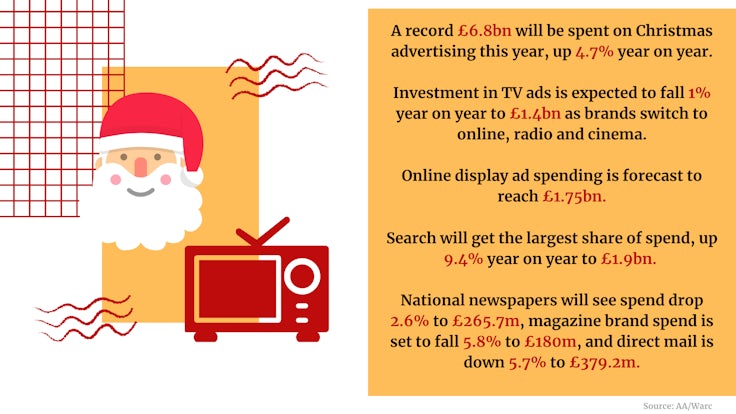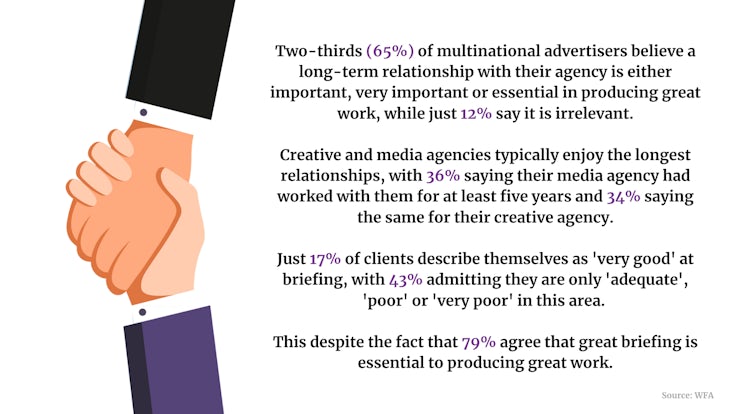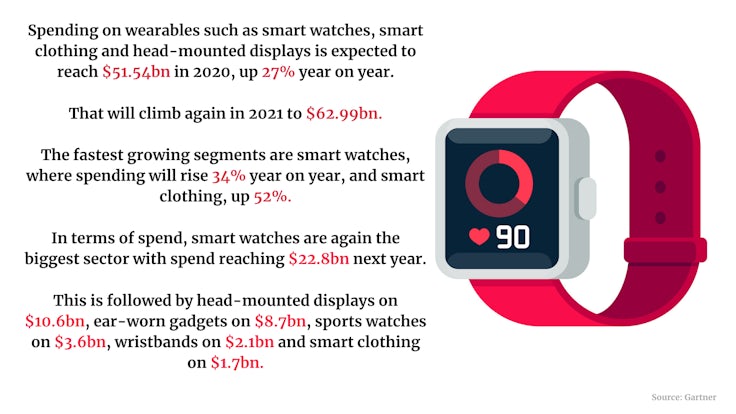A third of Britons think brands’ social media posts are ‘dishonest’
More than a third (36%) of Britons believe that what companies and business leaders post on social media is ‘dishonest’, while just 31% believe what companies post and 25% what business leaders post is honest.
People are most mistrusting of celebrities, with almost half (48%) of Britons considering celebrity social media posts ‘dishonest’, followed by influencers on 44%. Just 21% think celebrities and influencers are being ‘honest’ in how they portray their lives on social media.
Among regular social media users, two in five (41%) have seen inaccurate content, while a further 21% are unsure if they have. Nearly one in five (17%) say they have seen content that is completely false and incorrect, while 21% say they have seen content that is misleading, misinformed (20%) or manipulated (19%).
Source: YouGov
Christmas ad spend up but TV investment down
A record £6.8bn will be spent on Christmas advertising this year, up 4.7% year on year.
However, investment in TV ads is expected to fall 1% year on year to £1.4bn as brands switch to online, radio and cinema. Online display ad spending is forecast to reach £1.75bn, marking the first year more is spent on online display ads than TV.
Search will get the largest share of spend, up 9.4% year on year to £1.9bn. Outdoor will see spend increase by 5.8% to £379m, while spend on cinema is set to rise 5.4% to £101.5m and radio up 4.9% to £202.5m.
However, national newspapers will see spend drop 2.6% to £265.7m, magazine brand spend is set to fall 5.8% to £180m, and direct mail is down 5.7% to £379.2m.
Source: AA/Warc
The importance of long-term agency relationships
Two-thirds (65%) of multinational advertisers believe a long-term relationship with their agency is either important, very important or essential in producing great work, while just 12% say it is irrelevant.
Creative and media agencies typically enjoy the longest relationships, with 36% saying their media agency had worked with them for at least five years and 34% saying the same for their creative agency.
However, there are improvements that can be made. Just 17% of clients describe themselves as ‘very good’ at briefing, with 43% admitting they are only ‘adequate’, ‘poor’ or ‘very poor’ in this area. This despite the fact that 79% agree that great briefing is essential to producing great work.
Source: WFA
Wearables market set to increase by 27%
Spending on wearables such as smart watches, smart clothing and head-mounted displays is expected to reach $51.54bn in 2020, up 27% year on year. That will climb again in 2021 to $62.99bn.
The fastest growing segments are smart watches, where spending will rise 34% year on year, and smart clothing, up 52%. Smart watches will also be the biggest in terms of overall shipments, at 86 million units, followed by ear-worn gadgets on 70 million units.
In terms of spend, smart watches are again the biggest sector with spend reaching $22.8bn next year. This is followed by head-mounted displays on $10.6bn, ear-worn gadgets on $8.7bn, sports watches on $3.6bn, wristbands on $2.1bn and smart clothing on $1.7bn.
Source: Gartner
Consumer confidence falls as uncertainty reigns
Consumer confidence fell by two points in October to -14, with all five measures falling, as consumers worry about political and economic uncertainty.
Consumers’ feelings on their personal financial situation over the next 12 months and their propensity to make a big purchase were both down, raising concerns over spend at Christmas. The major purchase index fell two points to a score of one, while people’s views on their personal financial situation was down three points to one.
People are also concerned about the general economic situation, which sits at -33 over the past 12 months and -37 for the next 12.
Source: GfK




No comments:
Post a Comment